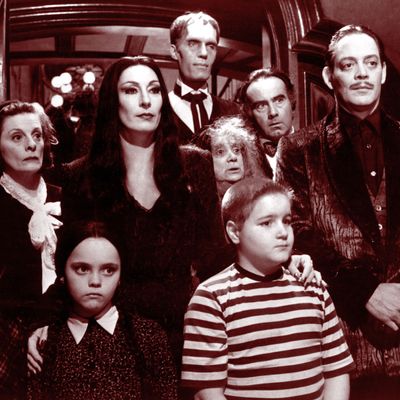
In honor of Valentine’s Day, Science of Us is spending this week talking about love — specifically, what happens when it goes wrong. If you ever wondered about the psychology of breakups, we’ve got you covered.
Some of the reasons people end relationships are dumb. Once, years ago, I broke things off with a very nice guy, not entirely because he had a habit of wearing his sunglasses on the back of his head, but it didn’t help. Others sound so obvious that they hardly seem worth thinking through. The authors of a new book, F*ck Love: One Shrink’s Sensible Advice for Finding a Lasting Relationship, begin by listing the “most common traits that people claim to look for when searching for a partner: charisma, beauty, chemistry, communication, a sense of humor, a good family, intelligence, and wealth” — all seemingly unassailable things to want if you’re looking for a long-term relationship. But the authors argue that these seemingly obvious characteristics are in fact exactly the ones that deserve more careful thought.
At times, F*ck Love — written by psychologist Dr. Michael Bennett and his daughter, comedy writer Sarah Bennett — wades into tiresome “everything you think is good is actually bad” territory. The Bennetts argue that “too many people choose their partners based on excitement, lust, attraction, neediness … on feelings,” perhaps not a surprising take for a pair whose previous book is titled F*ck Feelings. But many of the traits the authors choose to focus on have downsides that are not so surprising. Chemistry is wonderful, but won’t help much if you can’t agree on the practical matters like how to manage your money, or whether or not you want to have children. A sense of humor is fun, but it can also be annoying if it means having a partner who can’t engage in a serious conversation.
But then there’s the chapter on family. Seeking a partner who “comes from a good family” seems hard to argue with, in that you want someone whose family will be nice to you, and rejecting someone with a complicated family life can sound like a legitimate choice to make when deciding whom to date. But good people can and often do come from complicated, or even actively awful, families; likewise, just because a person has a good family, that isn’t a guarantee that they will make a good partner. For me, this was the most insightful part of F*ck Love, so I recently spoke with Sarah Bennett about it. An edited version of our conversation follows.
The section questioning the importance of a potential partner’s family life was so interesting to me. Why did you decide to include that in the book?
People say on their dating site profiles things like, ‘I’m looking for a guy who comes from a good family.’ That, of course, is not meant in the Downton Abbey sense — when people say that, they mean something more like, you know, ‘Someone who loves his mom.’ You see this in the blandest Match.com profiles. And it can, of course, be a very good thing, to date someone with a nice family. But it’s not necessarily a good thing. It can be very misleading when people assume, Well, if he loves his mom, and his parents were such good parents, then he’s going to be a good parent.
Can you think of an example of what you mean?
So, yesterday, we were in Toronto doing a bunch of book promotion. My dad’s family is from Toronto, so being there, you can’t help but think of my late grandmother, and at one point we were sitting around talking about her. Most of the stories involve the fact that she was — to use the clinical term — batshit insane. When my mother met her mother-in-law, I give her all the credit in the world for not running for her life.
But it’s a great example of the point we’re trying to make in the book — just because someone’s mother is exhibiting symptoms of, shall we say, batshittedness, that doesn’t mean that they’re going to be difficult, or a bad parent, or a bad partner.
On the other hand, if you do pursue a long-term relationship with someone whose family is, as you say, a bit batshitty, it does also mean you’re potentially signing yourself up for a lifetime of dealing with unpleasant relatives.
True. But the other lesson my father learned from his years of having to negotiate having a wife and kid and difficult parent is how important it is to create boundaries. People we’ve talked to while promoting the book have told us stories of having a parent that’s hard to take — maybe they hate everyone they date, or maybe it’s that they have a loud family that scares people off.
But you have to know how to create boundaries between the family you create with your spouse and the family that you have without hurting anybody’s feelings, without making it personal. That was so important to keep my family sane, to keep my mother from, you know, flying off to Argentina and never being heard from again.
Honestly, I read this as such a reassuring message to anyone who feels worried about their own weird family.
Yeah. We wanted to put that in the book for people who were like, ‘I’m never going to find someone who will put up with this crazy clan that I come from.’
This interview has been edited for clarity and length.





